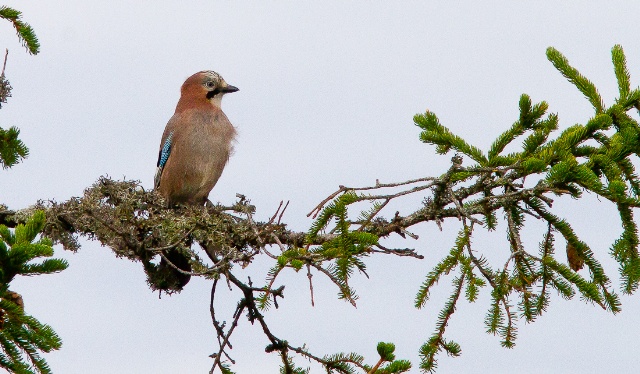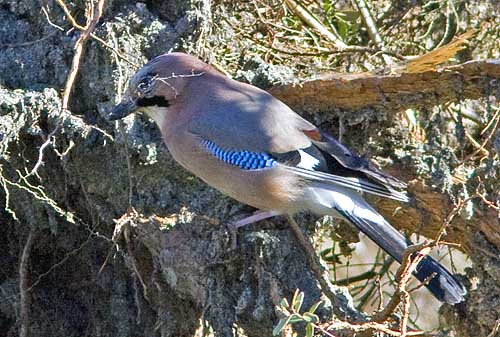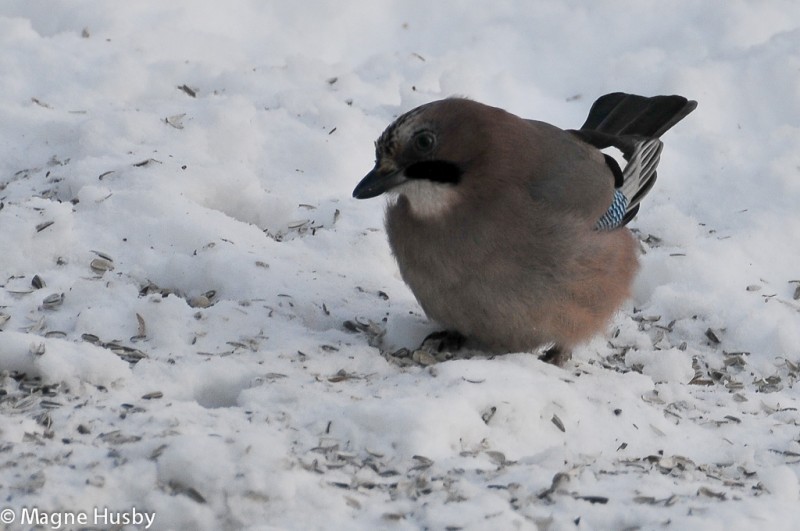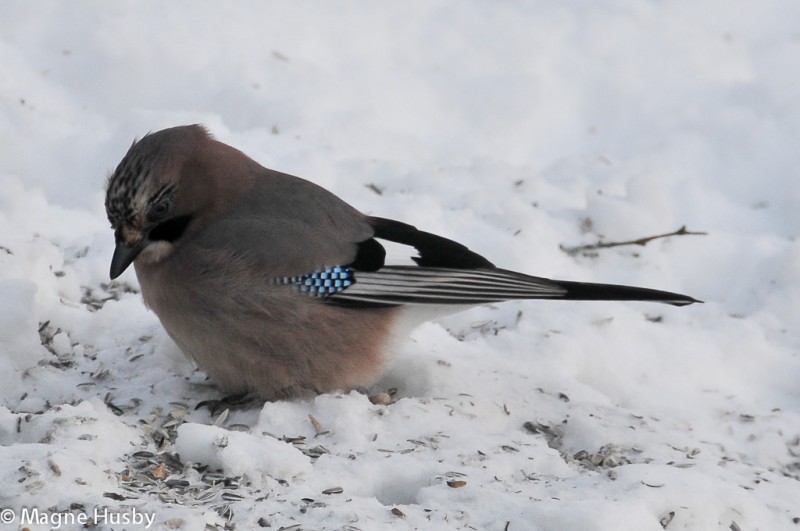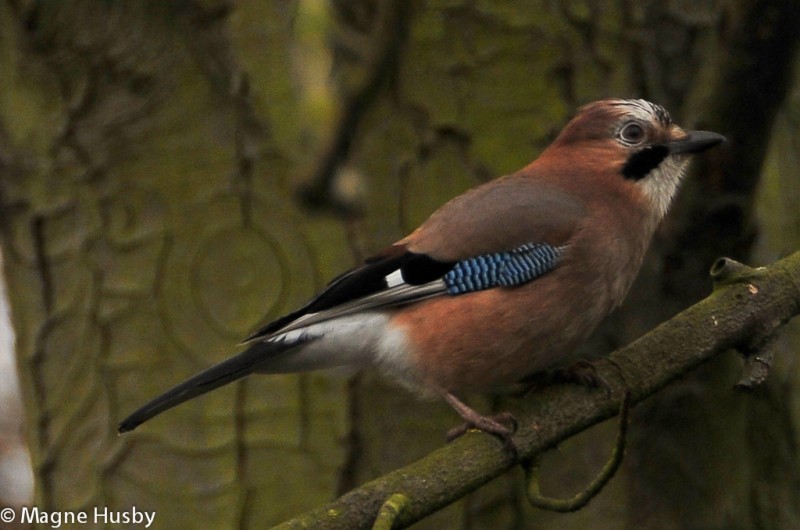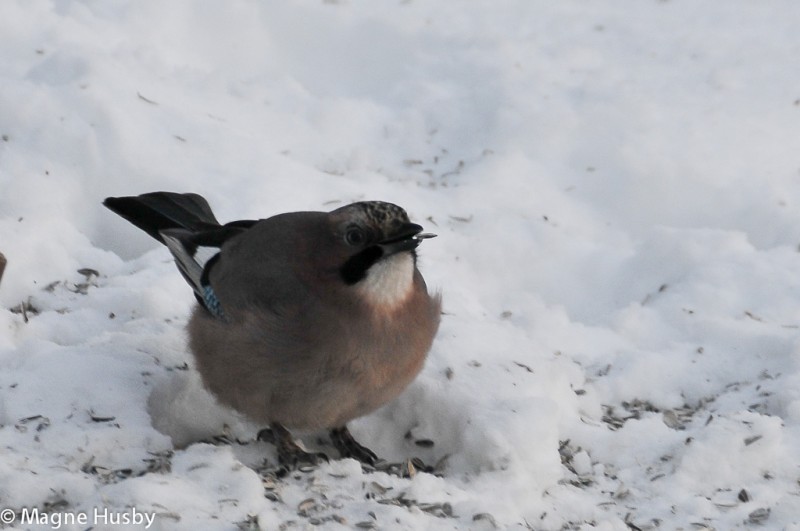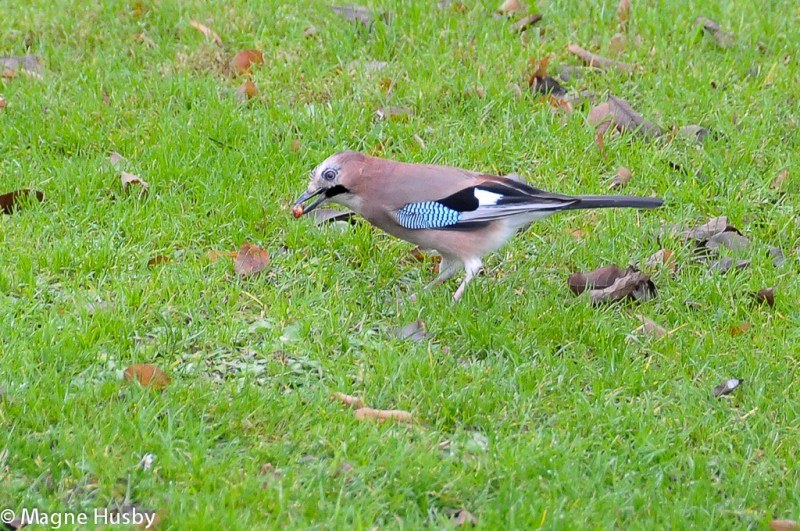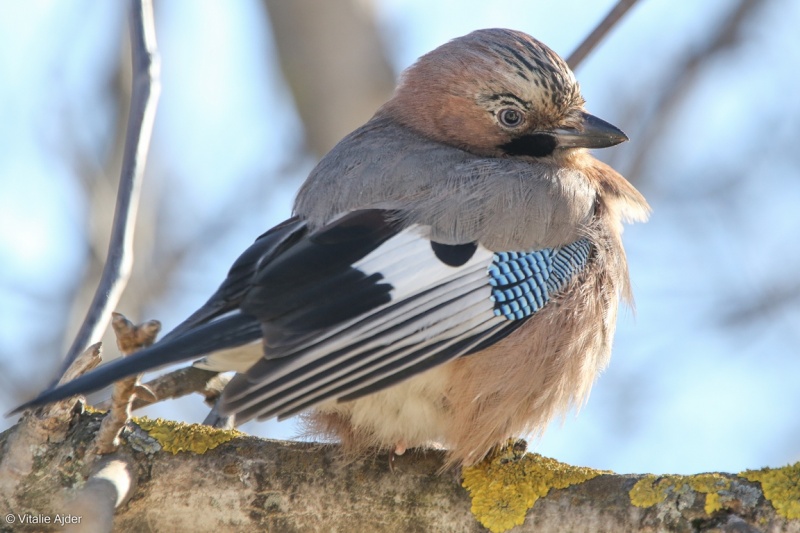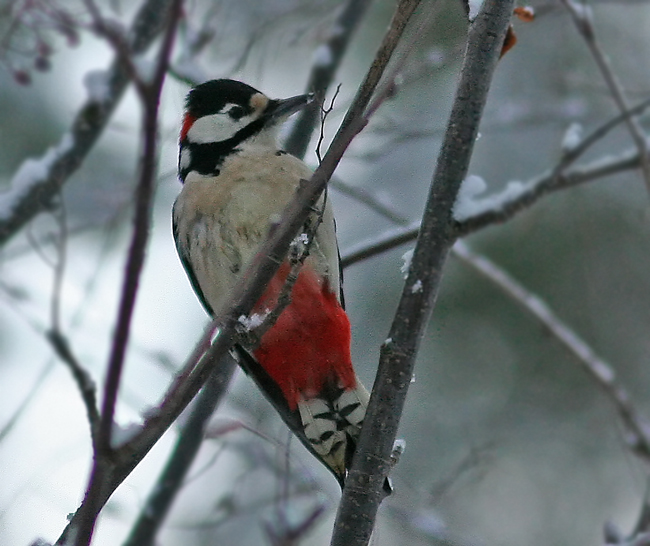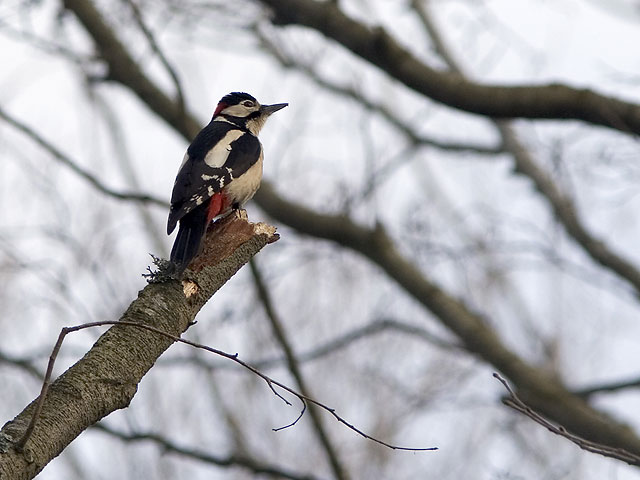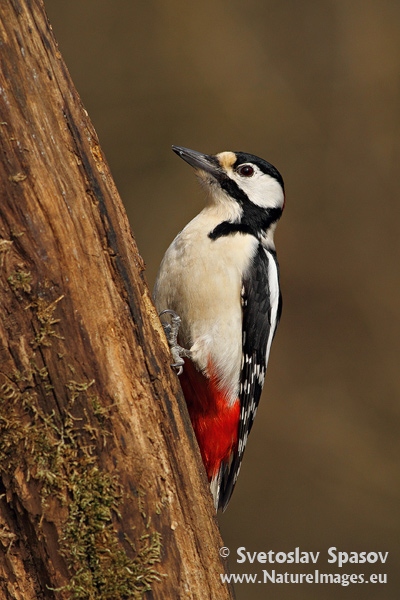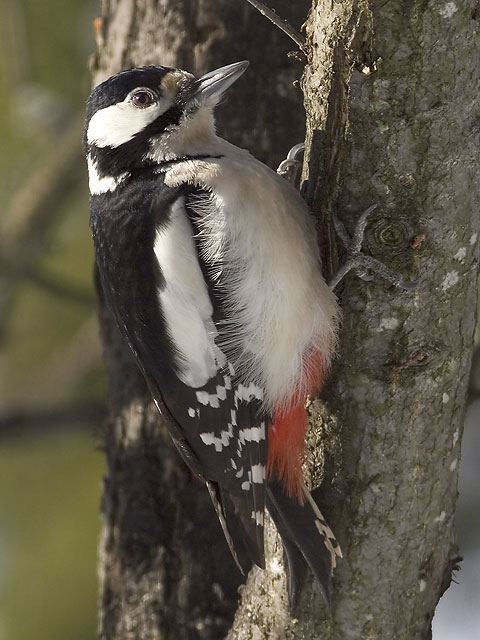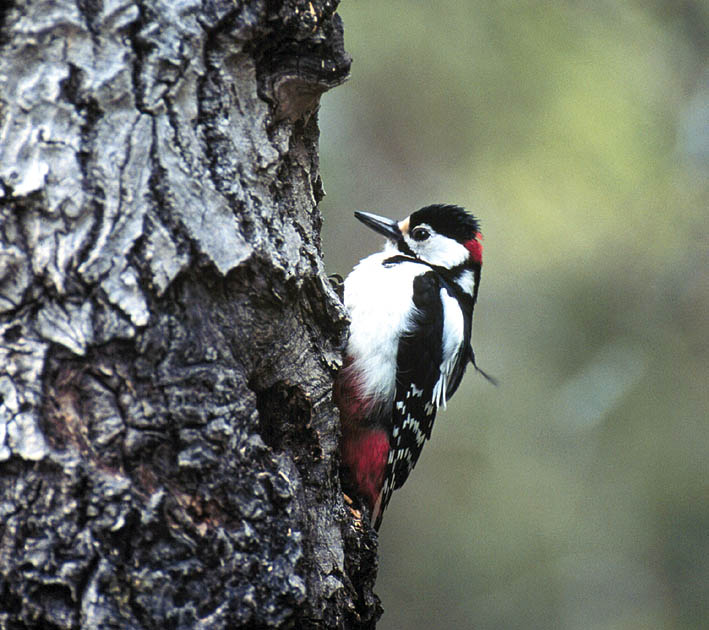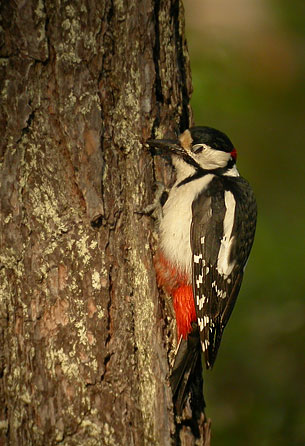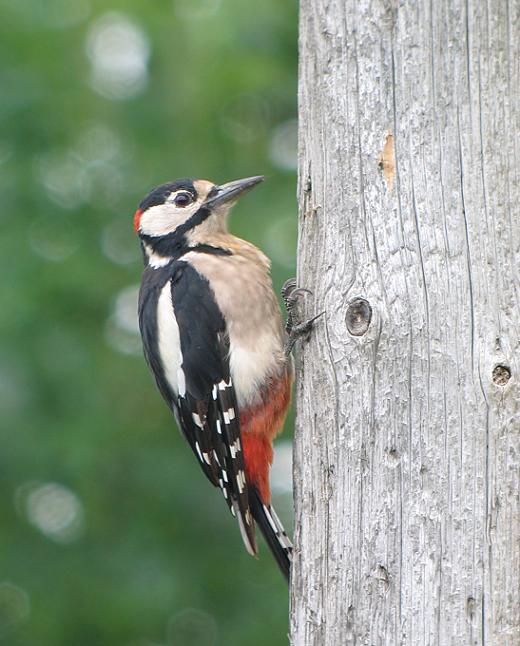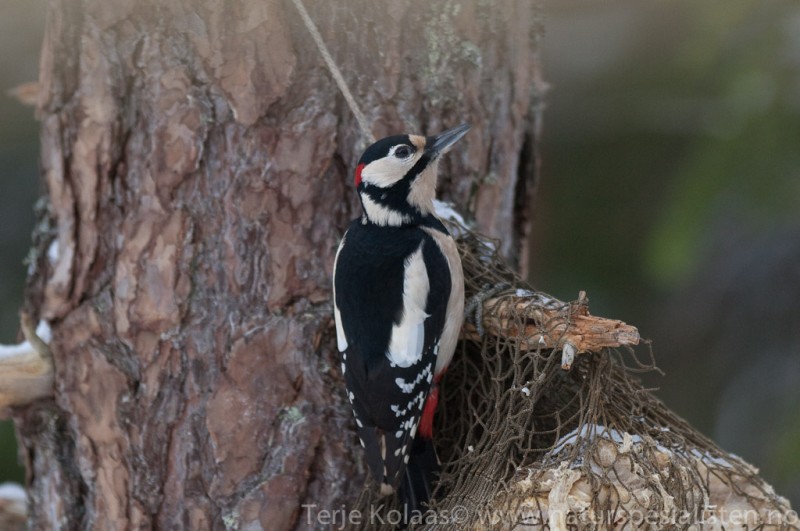Jay (Garrulus glandarius)
Great Spotted Woodpecker (Dendrocopos major)
Largely unmistakable. Pale pinkish brown. Wings dark with white and blue patches. Tail black and rump white (conspicuous in flight). Crown speckled in black. Striking black moustache stripe. Flight pattern straight and fluttering like Nutcracker, but tail longer and bill shorter.
Sound:Large repertoire. Most heard call a short, drawn and very hoarse, raspy sound, often given in quick successions. Also a Buzzard-like, mewing "peeeaaa" (more drawn and less full tone than Siberian Jay). Quiet and varied subsong with mimicry, resembling a small passerine heard from both sexes. Many other social sounds.
Alarm:
Distribution:
Wikipedia: map (se also Xeno-canto below)
Ecology:Birdlife ecology
Links:
Observation.org Latest observations
Image search Flickr NB! May give other species
CCPied, medium sized woodpecker with strong bill, and diagnostic elongated white shoulder patches (scapulars). Vent always red. Male with red hindneck, female shows no read on head. Juveniles with whole crown red, barred scapulars and pinkish vent. Differs from Syrian- and Middle Spotted Woodpecker in long moustache stripe connecting to both black nape and base of bill. Flight strongly undulated with alternating burst of wing-beats and glides with closed wings.
Sound:It's frequent drumming is easily recognized by its short duration. Typically it lasts 0.5 seconds, sometimes slightly longer. Contact call frequently hear throughout the year. A short hiccup "kek", sometimes in series. When excited this may escalate into a trill.
Contact call, alarm call, drumming:
Distribution:
Wikipedia: map (se also Xeno-canto below)
Ecology:Birdlife ecology
Links:
Observation.org Latest observations
Image search Flickr NB! May give other species
CC
 English
English Albanian
Albanian
 Armenian
Armenian
 Bulgarian
Bulgarian
 Catalan
Catalan
 Croatian
Croatian
 Czech
Czech
 Danish
Danish
 Dutch
Dutch
 Finnish
Finnish
 French
French
 Georgian
Georgian
 German
German
 Greek
Greek
 Hungarian
Hungarian
 Italian
Italian
 Latvian
Latvian
 Lithuanian
Lithuanian
 Macedonian
Macedonian
 Norwegian
Norwegian
 Polish
Polish
 Portuguese
Portuguese
 Romanian
Romanian
 Russian
Russian
 Sami : Lule sami
Sami : Lule sami
 Sami : North sami
Sami : North sami
 Sami : South sami
Sami : South sami
 Scientific names
Scientific names
 Serbian
Serbian
 Spanish
Spanish
 Swedish
Swedish
 Ukrainian
Ukrainian


